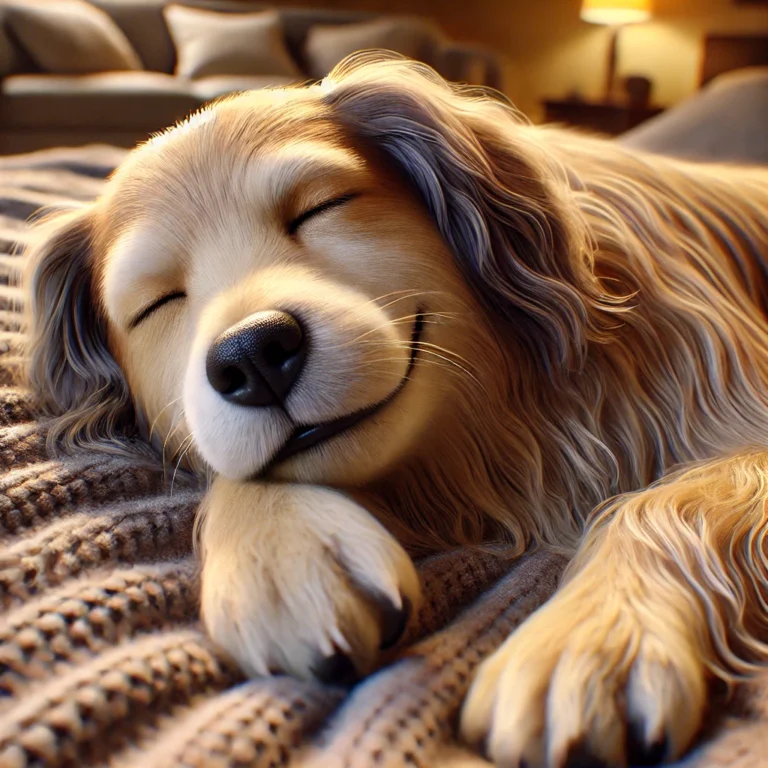
When you watched your dog sleep deeply, you might have wondered why they seemed to drift off into such a profound slumber. To stay happy and healthy, dogs like humans need quality sleep. But why do they sleep so deeply, and what does it mean for their well-being?
Let’s explain the dog’s deep sleeping and some reasons behind those adorable, deep sleeping moments.
An average dog’s sleeping duration is 12–14 hours a day, with puppies and older dogs sleeping even more. This is because, for physical and mental health, sleep plays a crucial role. Here’s why so many rest dogs need:
Dogs are naturally active animals; after playtime and walks, sleep helps them recharge.
Puppies brains are small and need rapid growth, so they spend a lot of time sleeping.
For dogs healthy life, deep sleep helps strengthen their immune system
The sleeping effect on human health is just like sleep helps dogs process emotions and memories.
When you see your dog sleeping deeply, they are likely in the REM (rapid eye movement) stage of sleep. This is when the most restorative sleep occurs. Here’s what happens during this stage
Dogs are dreaming, yah! You might notice your dog twitching, wagging their tail, or even running in their sleep.
Deep sleeping helps the dog’s muscles to fully relax, promoting recovery and growth.
Dogs learning and behavior in deep sleep are essential. Processing and storing memories is best in deep sleep.
Different factors invalue in dog deeply sleep like age, breed, health and activity level.all dogs not sleep in the same way:
Puppies bodies need growing so they sleep more deeply, This action of puppies help more health grow up, like puppies senior dogs Deep sleep for physical recovery.
Like Mastiffs and Saint Bernards, known for their large size generally sleep more deeply and prolonged periods of sleep compared to smaller dogs.
Working dogs particularly working breeds like Border Collies or German Shepherds, often have longer may enter deeper stages of sleep to facilitate muscle recovery and mental rejuvenation like post-exertion recovery processes.
A dog’s physical well-being directly influences its ability to achieve deep restorative sleep essential for their vitality.
Small movements, like paw paddling, muffled barks, and ear flicking, are natural signs of dreaming in dogs.
Their breathing rate decreases and stabilizes as they transition into restorative sleep phases, more measured breaths as your dog enters a profoundly relaxed state.
A dog’s deep sleep is not just about rest—it’s essential for their physical health, emotional well-being, and cognitive function. From conserving energy to processing memories and strengthening their immune system, sleep plays a vital role in their daily lives.
If you notice your dog twitching, dreaming, or breathing rhythmically, it’s a sign they are in a deep, restorative sleep. Factors like age, breed, activity level, and health influence how deeply a dog sleeps, but all dogs need quality sleep to thrive.
So next time you see your furry friend snoozing peacefully, let them enjoy their well-deserved rest—it’s their way of recharging for more playful, happy moments with you!